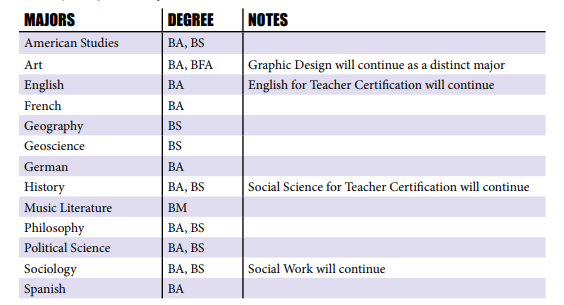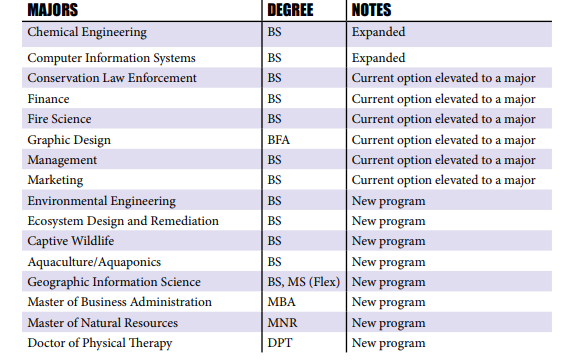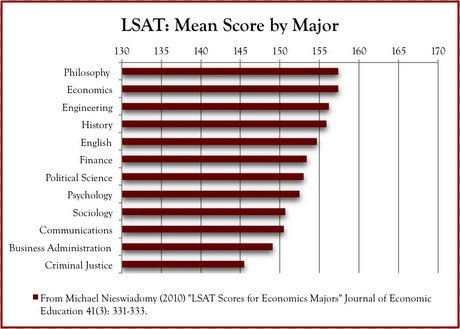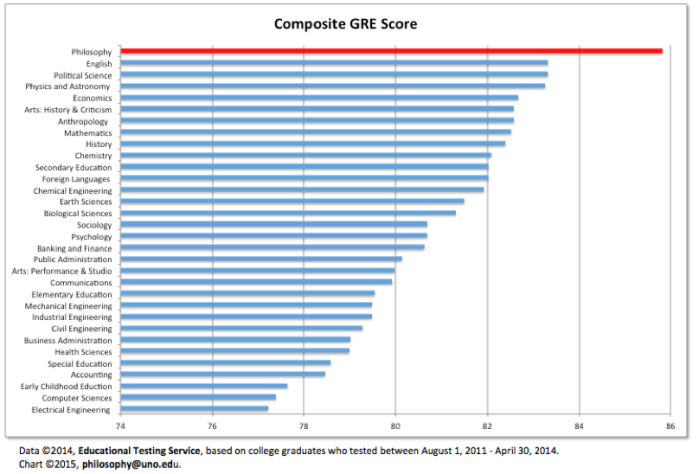POSTED BY THE AAUP
We are sharing this anonymous blog post from https://uwdismantle.wordpress.com with permission.
Importantly, we remain committed to ensuring every student who graduates from UW-Stevens Point is thoroughly grounded in the liberal arts, as well as prepared for a successful career path,” Patterson said in the statement. “It is critical our students learn to communicate well, solve problems, think critically and creatively, be analytical and innovative, and work well in teams. This is the value of earning a bachelor’s degree.”– UWSP Chancellor Bernie Patterson, March 5, 2018 News Release
On Monday, March 5, the administration of University of Wisconsin Stevens Point released its recommended program closures and expansions (availability of majors for students). This announcement has been anticipated for several months, following a year of budget discussions and strategic planning. Before the announcement, UWSP faculty had been given information that gestured toward a re-evaluation of what has historically been UWSP’s commitment to liberal education and the role of the comprehensive regional public university Nonetheless, many faculty, staff, and students were shocked at the degree to which those major programs targeted to be eliminated were nearly all the liberal arts disciplines in the College of Letters and Sciences. As the public document, “Point Forward: Reimagining our Curriculum for the Future” asks:
In this rapidly changing environment, UW-Stevens Point must adapt by selecting core specializations and striving to offer the best programs possible within these areas. The operative question is this: If we can no longer function as a broadly comprehensive institution, then how best can we forge a new, more focused identity for the twenty-first century?
The recommended paths forward are exclusively focused on the elimination of liberal arts majors that have been the foundation of a university education, with expanded investment in programs that are vocational and technical in nature. The first table shows what is being cut, while the second shows what is being added.


UWSP leadership has explained by turns apologetically and pragmatically the justification for the change. “Really, what this is about today is a really large curriculum proposal. How our curriculum can move forward in the 21st century to meet career needs to meet economic needs of the area, the region’s needs,” [Dean of the College of Arts and Sciences Eric] Yonke explained. Provost Greg Summers acknowledged, “The simple financial reality that our institution is in is we cannot afford to be the same kind of comprehensive university that we’ve been in the past.” But what will the costs of these decisions be forcentral Wisconsin?
What do the Liberal Arts do Anyway?
It is popular for faculty in these fields sometimes to talk about about what they believe to be the “inherent” value of these disciplines. They might make arguments typically offered by organizations like the AAC&U about broad-based liberal education creating a well-rounded person and a common foundation of knowledge, they might discuss the cultivation of dimensions of the education person through the study of a broadly defined liberal arts curriculum: critical thinking, communication skills, problem solving, lifelong learning skills, intellectual curiosity, flexible thinking, ability to adapt, abilities to process and analyze information, personal insight, civic engagement, etc. These arguments both outline the important intrinsic features and outcomes of liberal education.
However, liberal education serves other important functions within the economic and political landscape. To say that the only value of liberal arts fields it intrinsic does not capture the ways that these dispositions, content knowledge, and skills translate into opportunity for students.
Lost Pathways?
In northern and northcentral Wisconsin, the access to college education is significantly different from the far southern part of the state. The next closest four-year college to Wausau is 90 minutes west or 90 minutes east (Eau Claire or Green Bay). Such a distance would be an impossible commute for many of the students who are placebound or who want to live at home to cut costs. These changes mean that a student could still start and complete their first two years of general education at UW Stevens Point and Marathon or Marshfield/Wood County, but they would no longer be able to complete a liberal arts four-year degree in any of those degree programs that students are most likely to require as a foundation for some of the most influential professional fields.
For example, let’s say a prospective student wants to be a lawyer. The eliminated majors include three of the top five scoring student majors for the LSAT (the standardized test required for law school). History, English, Philosophy, and Political Science are all degree programs eliminated under the current proposal:

In addition, while many medical students major in biological sciences (preserved under the proposal), students with humanities degrees actually had higher average scores on the MCAT (the standardized test score for admission to medical school then biological sciences majors) than students who majored in biology.
On the GRE, the standardized test that typically is required for nearly every graduate school or program post baccalaureate, students who major in five of the top 10 scoring disciplines will be eliminated under the proposal (philosophy, English, Political Science, History, and Arts).

Why do these statistics matter? They are one way of documenting the ability of students to be competitive for admission to well-paying, rewarding and highly-regarded fields of study. We are essentially closing off whole programs that–in the rural northern counties that UWSP draws from–will now be unavailable to students who either want to live at home, close to home, or remain in the area for college and potentially beyond. We have also eliminated the ability of the university to recruit those students who have ambitions or hopes to prepare themselves for those types of careers to even apply for admission to UWSP. They will not be able to pursue the degrees that will make them most prepared for those careers. And these areas of the state already struggle to recruit non-homegrown professionals: lawyers, doctors, accountants, entrepreneurs.
For central Wisconsin parents, that means that you will have no choice but to send your students away to college somewhere else if you, or they, have professional ambitions beyond the bachelor’s degree, or who hope to be prepared by their liberal arts education for success in their career beyond their ‘first job out.”
Success for the Career Long Haul
An Atlantic article noted that fields falling within the Liberal arts attract 33.8% students who were first generation, compared with 30.4% of students who were continuing generation; first-job salaries are lower, but “over time, liberal-arts graduates’ earnings often surge, especially for students pursuing advanced degrees. History majors often become well-paid lawyers or judges after completing law degrees, a recent analysis by the Brookings Institution’s Hamilton Project has found.”
A Washington Post article making the rounds on social media reported on the findings from an internal Google data collection that “among the eight most important qualities of Google’s top employees, STEM expertise comes in dead last. The seven top characteristics of success at Google are all soft skills: being a good coach; communicating and listening well; possessing insights into others (including others different values and points of view); having empathy toward and being supportive of one’s colleagues; being a good critical thinker and problem solver; and being able to make connections across complex ideas.” As the story goes on to note, these qualities all appear to me most likely to be associated with fields that require intensive reading, collaboration, analysis, writing, analysis skills, and management of large amounts of information–in other words, the humanities and social science majors that are being eliminated in this proposal.
Changing the Mission, Faculty, and Student Body of UWSP
The talented faculty and staff of UWSP have made their lives and careers at the institution to do the work of sharing their knowledge with, of mentoring and supporting, students in general education and major programs. The student body that they previously attracted–students who came to UWSP either intending to or quickly deciding to major in those eliminated programs will fundamentally change.
Those departments–though they will continue to contribute courses to and support for the general education (first two years) of the Baccalaureate program, will go from teaching students, courses, and degree programs that were purposefully selected and chosen by students as their fields of study to students, courses, and degree programs who explicitly did not apply to UWSP to pursue any of those fields and don’t expect to because they aren’t available. In other words, the whole mission and vision that those faculty were brought to support is going away. It will be difficult to attract faculty in a national search for those fields (which has been the practice of UW comprehensives) to teach in programs that explicitly DON’T have students who want to study those disciplines.
Though it is not been discussed as part of the merger or program elimination, we also have to consider the issues of student transfer, access, and success. By branching Marathon and Marshfield campuses with UWSP, the rhetoric has been that this will increase the seamlessness of transfer of student from two-year to four year campuses. Except, what if the exact opposite is true? What if, now, students are being locked into a curriculum that will be the one UWSP currently offers; four year colleges have generally not worked very hard to create easy transfer (or been attentive to those students) because their mission traditionally hasn’t been for students to transfer. Students start at those residential campuses usually with the intention to finish; now, the branch campuses will be their general education and associate’s degree courses under a four-year college catalog (which the new merger proposal necessitates). Students who intended to major in any of the eliminated 13 humanities and social science fields will have to transfer to a different school within the System or out of state. The seamlessness of transfer suddenly then becomes less likely rather than more likely. By contrast, with the above reversal of UWSP’s mission and commitment to liberal arts, the Marathon and Marshfield campuses will actually continue to attract, support, and cultivate students with aspirations to major in the humanities and social sciences–they will just transfer to a campus that is not UWSP.
We need to think hard, in this context, about what this mission and program shift will mean for Marathon County, Taylor County, Wood County, Waupaca, Adams, and Juneau and Portage County and every county that is within 100 miles of UWSP. What will this mean for culture, economics, marketability, the labor force, and our families? This isn’t just about closing some programs; it will fundamentally shift opportunity and choices for our children.
Two years ago, Scott Walker attempted to take the Wisconsin Idea out of state statute, taking out the mission statement to “extend knowledge and its application beyond the boundaries of its campuses” and would thus cease its “search for truth” and its efforts to “improve the human condition,” and replacing it with “meet the state’s workforce needs.” Legislators and the governor did not succeed in taking those core tenets of the mission statement of the UW System–the mission that guided decisions that elevated the UW campuses and its flagship to its reputation as a “world class” institution–but they did not have to change the words in order to change the mission. UWSP’s pivoting toward vocational and technical major programs, and elimination of the liberal arts majors that are being eliminated will change the search for truth into the acceptance of facts, and so the words will be hollow even if they remain.
- Questions, comments for UWSP leadership? www.uwsp.edu/forkintheroad/pages/contact-us.aspx.
- Ray Cross, Office of the President/(608) 262-2321/(608) 262-3985/rcross@uwsa.edu
- The UW Board of Regents/https://www.wisconsin.edu/regents/about-the-regents/



Ray Cross’s mission from when he was first hired as chancellor of UW Colleges has been to take higher education away from the people and hand it over for private gain to the few. Faculty, staff, students, and the people of Wisconsin should demand his resignation.
Pingback: Laboratories of Austerity | ACADEME BLOG